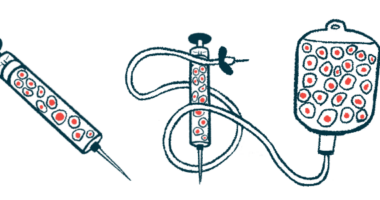Lessons from ‘Motormouth’ Moschitta: How to talk to your doctor
At doctor appointments, if you don't understand something, don't pretend you do

Eleven words per second. The very thought sounds impossible, yet John Moschitta Jr., currently the fastest-talking man on the planet (after the late Steve Woodmore), can do exactly that.
While most people wouldn’t necessarily know Moschitta by name, it wouldn’t take long for a kid of the late 1980s and early ’90s to unlock their core memories of him: He played Mr. Testaverde on “Saved by the Bell,” was the speed-talking executive in a popular ’80s FedEx commercial, and perhaps most famously, the mechanic from the MicroMachines commercials.
In an interview with “Great Big Story” on YouTube, Moschitta revealed that while he could chatter fast, he would slow 11 words per second down to about six words per second if he were on the radio, because without a visual aid, no one would understand what he was saying. Therefore, slowing his talking speed was necessary, because unlike in real life, you can’t instantly repeat a radio commercial for better clarity. The audience needed to get it the first time.
‘I’m sorry, what?’
While I used to be grateful that life didn’t include many people who talked like John Moschitta Jr., there have been many times when I felt like I was stuck in an 11-words-per-second kind of experience.
When our daughter, whom we lovingly refer to as Ladybug, was diagnosed with hereditary angioedema (HAE) in 2021, some of the hardest appointments were the ones where we were receiving new information.
When we finally found a physician that listened to our questions and concerns, as with most rare diseases, we encountered a bevy of information with medical terms, medicines I couldn’t pronounce or spell, and signs and symptoms we had difficulty getting a handle on.
While constantly receiving new information, we also had to keep up with old medications, document Ladybug’s flares and hospital trips, and remember all the correct steps when administering medication. Most days, it felt like trying to get a sip of water from a fire hydrant.
“What did the doctor say?” my husband asked me when I returned from one particular appointment.
“I don’t know,” I replied.
I honestly didn’t remember.
It had been an exhausting week, and when Ladybug’s doctor explained the ins and outs of the different types of HAE, which type she had, what our options were, and what kind of treatment we could decide on, I was lost.
Honestly, I thought I was too smart to ask the doctor to repeat what he said or spell the words I couldn’t pronounce. When he asked me if I understood, I would nod and he would continue. I thought I was supposed to understand, as I was the caregiver.
What a ludicrous idea. Even after getting rest and attempting to navigate “Dr. Google,” I realized I had missed so much.
By Ladybug’s next appointment, I pushed past the fear of seeming unsmart and asked the doctor if he could go back and reexplain everything he had said during the previous appointment. He did, of course, and he was glad to. We had found a fantastic physician, and because we all needed to be on the same page regarding Ladybug’s care, he was willing to explain everything until I understood it.
Doctor appointments no longer feel like MicroMachine commercials. I am OK now with interrupting the middle of an explanation to make sure I understand what’s being said. And I am a confident caregiver when we’re walking out.
Slowing down a doctor, asking them to repeat something, or asking them to review information doesn’t mean you’re not intelligent enough to understand it. It shows that you want to be well versed in a treatment or a caregiving plan. And that’s one of the wisest decisions a person can possibly make.
Note: Angioedema News is strictly a news and information website about the disease. It does not provide medical advice, diagnosis, or treatment. This content is not intended to be a substitute for professional medical advice, diagnosis, or treatment. Always seek the advice of your physician or other qualified health provider with any questions you may have regarding a medical condition. Never disregard professional medical advice or delay in seeking it because of something you have read on this website. The opinions expressed in this column are not those of Angioedema News or its parent company, BioNews, and are intended to spark discussion about issues pertaining to angioedema.








Comments